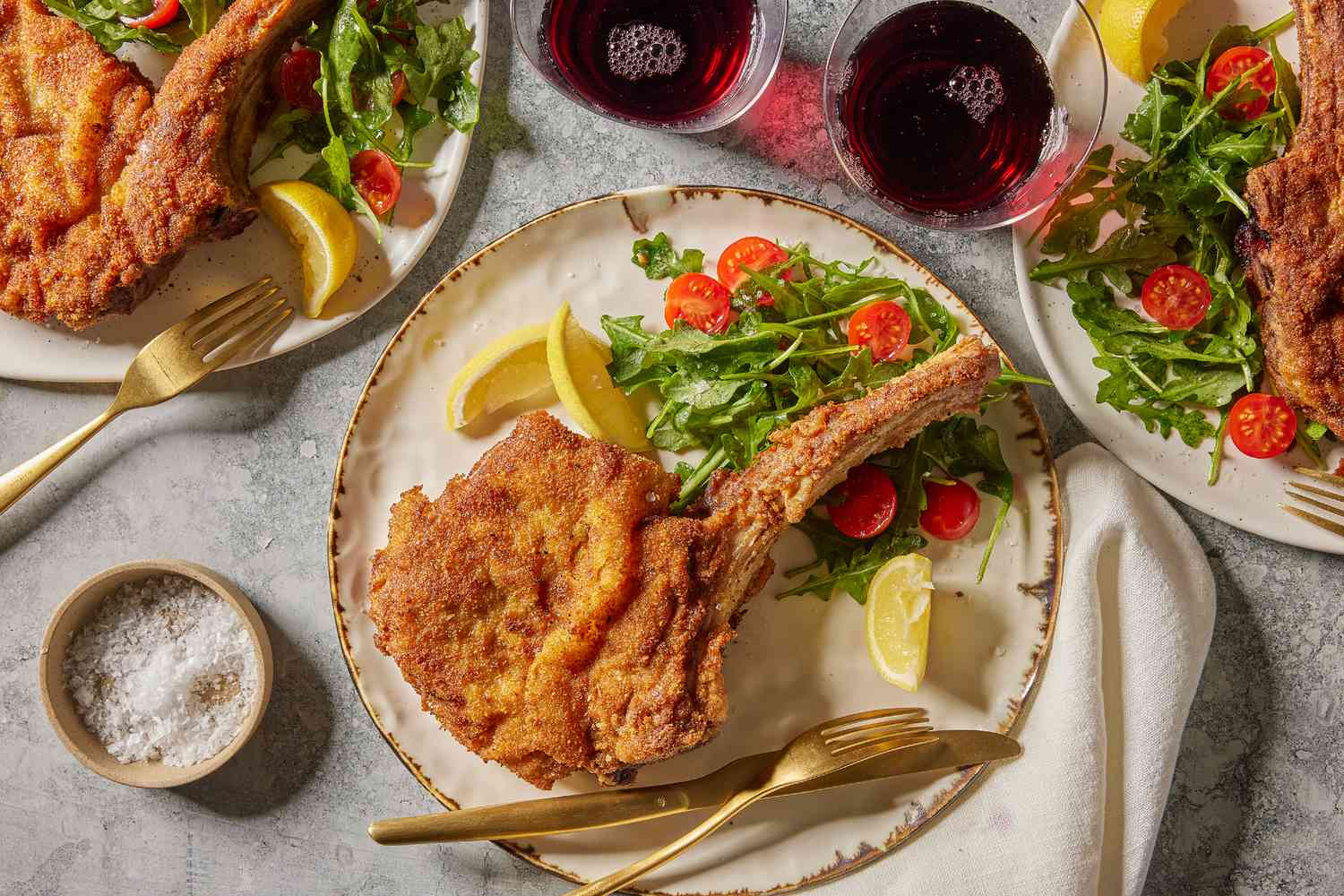
Ever wondered what makes veal a standout choice in gourmet kitchens and health-conscious diets alike? Veal nutrition might just be the secret ingredient you're looking for! Packed with essential vitamins and minerals, this tender meat is not only a delight to the palate but also a powerhouse of nutrition. From its impressive protein content to its rich array of B-vitamins, diving into the world of veal nutrition is like uncovering a hidden gem in the culinary world. But hey, what exactly makes veal such a nutritious option? And how can it fit into your daily diet? Stick around as we slice through the facts, serving up the top 17 veal nutrition facts that'll have you rethinking your next meal choice. Trust me, you won't want to miss this juicy bit!
Key Takeaways:
- Veal is a protein powerhouse, great for muscle growth and repair. It's low in fat and rich in vitamins and minerals, making it a healthy choice for those looking to maintain or increase muscle mass.
- Veal is a versatile and nutritious meat option. It supports muscle growth, aids in weight management, boosts the immune system, and promotes heart health when consumed in moderation.
Understanding Veal: A Brief Overview
Veal, often considered a delicacy in many cuisines, comes from young cattle. Unlike beef from older cattle, veal is prized for its tender texture and lighter flavor. This distinction not only influences culinary preferences but also impacts nutritional content. Let's delve into the specifics of veal nutrition.
Veal Nutrition: The Basics
-
Protein Powerhouse: Veal is an excellent source of high-quality protein, essential for muscle repair and growth. A 3-ounce serving can provide about 24 grams of protein, making it a fantastic choice for those looking to maintain or increase muscle mass.
-
Low in Fat: Compared to many cuts of beef, veal is relatively low in fat. This makes it a leaner option for individuals monitoring their fat intake for health or dietary reasons.
-
Rich in Vitamins: Veal is a good source of B vitamins, particularly vitamin B12, which is crucial for nerve function and the production of red blood cells. It also provides niacin, which supports metabolism and skin health.
-
Mineral Content: This meat is rich in minerals such as zinc, essential for immune function, and selenium, which plays a key role in antioxidant defense systems within the body.
Health Benefits of Eating Veal
-
Supports Muscle Growth: With its high protein content, veal is beneficial for muscle synthesis and repair, making it a popular choice among athletes and those engaged in regular physical activity.
-
Aids in Weight Management: Due to its lean nature, veal can be a great component of a diet aimed at weight loss or maintenance, as it provides satiety without excessive calories.
-
Boosts Immune System: The zinc found in veal is vital for maintaining a healthy immune system, helping the body fight off infections and diseases.
-
Promotes Heart Health: Veal's low fat and cholesterol levels, combined with its nutrient richness, contribute to a heart-healthy diet when consumed in moderation.
Culinary Uses and Considerations
-
Versatility in Cooking: Veal can be prepared in various ways, including grilling, roasting, and sautéing. Its mild flavor makes it suitable for a wide range of dishes, from Italian veal scallopini to French blanquette de veau.
-
Ethical Considerations: Some consumers have concerns about the ethical aspects of veal production. It's important to source veal from farms that adhere to high animal welfare standards.
Nutritional Comparison with Other Meats
-
Lower Fat Content than Beef: Veal typically has a lower fat content than beef, making it a healthier option for those concerned about dietary fats.
-
Higher in Protein than Chicken: On a per-ounce basis, veal can have more protein than chicken, offering a valuable alternative for those looking to diversify their protein sources.
-
Richer in Iron than Pork: Veal is a better source of iron compared to pork, providing more of this essential mineral which is crucial for preventing anemia.
How to Incorporate Veal into Your Diet
-
As a Protein Source in Meals: Replace some of your usual meat choices with veal to enjoy its nutritional benefits. It pairs well with a variety of sides, from vegetables to grains.
-
In Moderation: While veal is nutritious, it's best consumed in moderation as part of a balanced diet, considering its price and ethical considerations.
-
Explore Different Cuts: Different cuts of veal offer varying textures and flavors. Experimenting with these can enhance your culinary experience and nutritional intake.
-
Consider Preparation Methods: Opt for healthier cooking methods like baking, grilling, or steaming to preserve the nutritional value of veal while minimizing added fats.
A Final Nibble on Veal Nutrition
Veal, often overshadowed by more common meats, packs a nutritional punch that's hard to ignore. Rich in protein, vitamins, and minerals, it's a powerhouse for those looking to diversify their diet. With its lean profile, veal is an excellent choice for health-conscious eaters aiming to maintain or reduce weight without sacrificing flavor. Remember, though, balance is key. Incorporating veal into a diet that's varied and rich in fruits, vegetables, and whole grains ensures you're not just focused on one type of nutrient. Also, considering the ethical and environmental aspects of veal production can help make informed choices that align with personal values. So, next time you're pondering dinner options, veal could be a tasty and nutritious addition to your meal plan.
Frequently Asked Questions
Was this page helpful?
Our commitment to delivering trustworthy and engaging content is at the heart of what we do. Each fact on our site is contributed by real users like you, bringing a wealth of diverse insights and information. To ensure the highest standards of accuracy and reliability, our dedicated editors meticulously review each submission. This process guarantees that the facts we share are not only fascinating but also credible. Trust in our commitment to quality and authenticity as you explore and learn with us.


